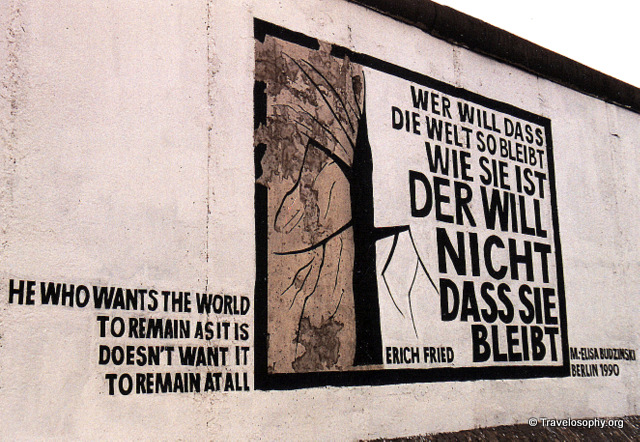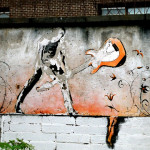
What is individuation? In a nutshell, it is purposeful personal growth. According to Jung, individuation is a lifetime’s work while being at the same time a natural process of maturing. The idea is for an individual to enhance and deepen this process by consciously working on the unconscious, the unexplored parts of our personality and character. This would lead us to our authentic selves by discovering, or rather uncovering, the real self as opposed to the ego-self, which we usually tend to live by.
Individuation is not individualism: “Individuation differs from individualism in that the former deviates from collective norms but retains respect for them, while the latter eschews them entirely”.[1]
In Carl Jung’s own words (Quoted from Wikepedia) …Individuation is a process of psychological differentiation, having for its goal the development of the individual personality. “In general, it is the process by which individual beings are formed and differentiated; in particular, it is the development of the psychological individual as a being distinct from the general, collective psychology.” [2]
Individuation takes work of the inner kind. It involves deep introspection and conscious integration of unconscious aspects of the psyche. It requires having to face oneself and having to be honest with oneself. It necessitates having to think for oneself and having to be independent from group antics, ethics and influences. It demands having to stand on one’s own feet. It requires having to be able to resist conformity. It insists on being responsible when responsibility is called for.
By confirmation through observation, this is where we have to come to the conclusion that purposeful individuation is simply too hard for “modern man or woman” and would hold no perceived short-term benefits. Purposeful individuation would take serious self-confrontation, whereas modern day individualism is all about instant pleasure and sensation. Individualism has taken over from individuation, negating self-exploration.
Once we acknowledge that this is indeed the current general reality, we might feel prompted to inquire where this propensity to pleasure and enjoyment as a priority comes from. Sigmund Freud identified “the will to pleasure”, also known as the pleasure principle, decades ago:
“In Freudian psychology, the pleasure principle is the instinctual seeking of pleasure and avoiding of pain in order to satisfy biological and psychological needs. Specifically, the pleasure principle is the driving force guiding the id.” [3]
According to Freud we are in a constant struggle with the will to pleasure, but we are meant to learn how to manage it:
“Maturity is learning to endure the pain of deferred gratification when reality requires it. Freud argued that “an ego thus educated has become ‘reasonable’; it no longer lets itself be governed by the pleasure principle, but obeys the reality principle, which also, at bottom, seeks to obtain pleasure, but pleasure which is assured through taking account of reality, even though it is pleasure postponed and diminished”– ^ Sigmund Freud, Introductory Lectures 16.357.[4]
Jung had hoped that we would be able to collectively step over the pleasure principle. In reality we have stopped taking account of the reality principle.
Western society has more or less become infantile in its seeking of pleasure. What has become important is success, fame, popularity, attention, ease, convenience, entertainment and personal importance. In addition we expect to get much of this in the shortest possible time. We do not progress to maturity any more and when we already have achieved maturity, we are prepared to let go of it. This demand for pleasure is at the root of our resistance to responsibility, because responsibility is perceived to undermine our enjoyment, fun and pleasure.
Returning to Heraclites again, we could even say that in the present day, one thing more constant than humans’ resistance to change is their resistance to responsibility. In fact, our current understanding of freedom is indeed considered to be freedom from responsibility, the “Ultimate Freedom”.
Freedom from responsibility means that all responsibilities have been outsourced. Generally speaking, we have absolved ourselves from having to care, from having to have a conscience or having to subscribe to any kind of morality. We can now live truly freely and seek out pleasure for the principle of it. We can freely choose what we believe in or who or what we support, to motivate and complement our comfortable dispositions, rather than our choices being reflections of our value systems. We have arrived at the freedom from having to individuate purposefully.
We have political leaders to take care of our political choices and decisions. We have prosperity faith for feel-good religious entertainment. There are New Age solutions for manifesting wealth simply by thinking positively. We have supermarkets which choose our ready-made, prepackaged, processed foods on our behalf. Fashion stores and outlets will decide and choose what we’ll wear from season to season. We have the entertainment industry working overtime for our enjoyment and social media hooks us into 24/7 networking and self-promotion. When something goes wrong or there is a problem we can always blame it all on bad service and corrupt politicians.
Traditionally, we humans used to believe that we (have) set ourselves apart from our more primitive ancestors, through our cultural norms, our civility and our moral values and ethics. However, these frameworks which essentially used to form the boundaries of our conduct, and set the terms for it, are now being abandoned by many of us. These inner structures developed over centuries as part of our evolution, resulting in what we call civilisation. Yet, in this day and age we prefer to be boundary-less and we have been aspiring to that for a good while already. We want to be restrained and restricted by nothing and so we increasingly reject traditions and traditional values. It would be fair to say that in many parts of the world we are now in “The Era of the Ego” rather than in “The Era of the Authentic Self” as Jung had hoped.
The problem of course is that our boundary-less, comfortable lifestyles are destroying the planet systematically. This we know, but naturally we don’t like to dwell upon it too much. It is us humans who are most likely to bring an apocalypse upon ourselves, whether through contamination, pollution, deforestation, urbanization, resource depletion or a nuclear war conflagration. Yet, we prefer however to project imminent danger at the feet of Mother Nature: the possibility of earthquakes, meteors, volcanoes and tsunami’s, cyclones and floods (!), as if “we” have nothing to do with it. Climate change, after all, is probably a hoax, or so we tell ourselves.
Due to our will to avoid responsibility, we consider natural disasters to hold a bigger threat than artificial man made ones, yet the man-made ones are the ones that are within our control. Nevertheless, all of this rests heavily on our submerged collective conscience. Hence, while living in a comfortable, numbed-out, self-created illusory world of pleasure and fiction, every now and again something does stir in us, as in Jung’s archetype of the end. How we respond to that stirring, though, usually turns out to be very much like humanity’s “Ground Hog Day“.
How do we get out of this cycle? We will continue to explore these themes in the next installment.
By Jean-Jacques Montagnier
© 2014. All Rights Reserved.
This is Part 3 of a series. Continue to Part 4.
Citations and references:
[1] http://www.nyaap.org/jung-lexicon/i
[2] C.G. Jung. Psychological Types. Collected Works Vol.6., par. 757
[3] http://en.wikipedia.org/wiki/Will_to_pleasure
[4] http://en.wikipedia.org/wiki/Will_to_pleasure / Sigmund Freud, Introductory Lectures 16.357
Jean-Jacques / Gypsy Café does not endorse or support ads placed by WordPress.com below posts.

